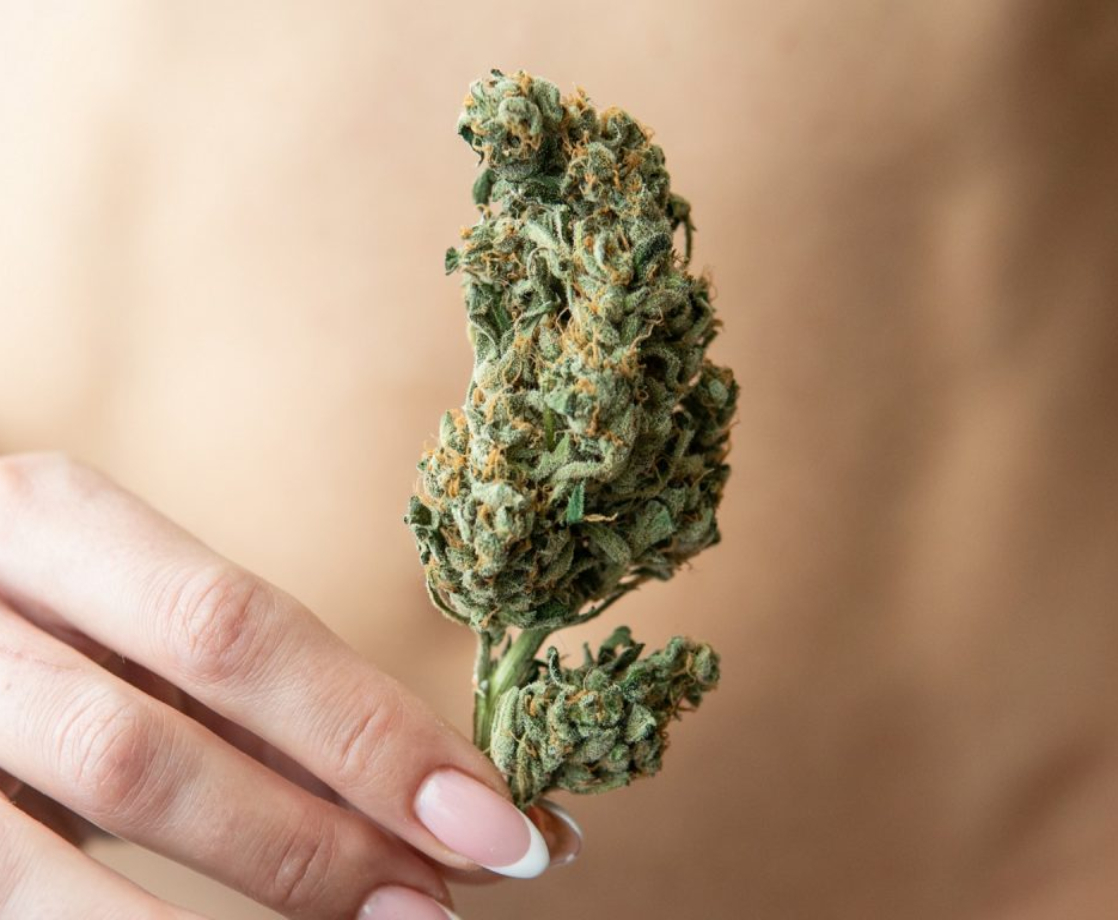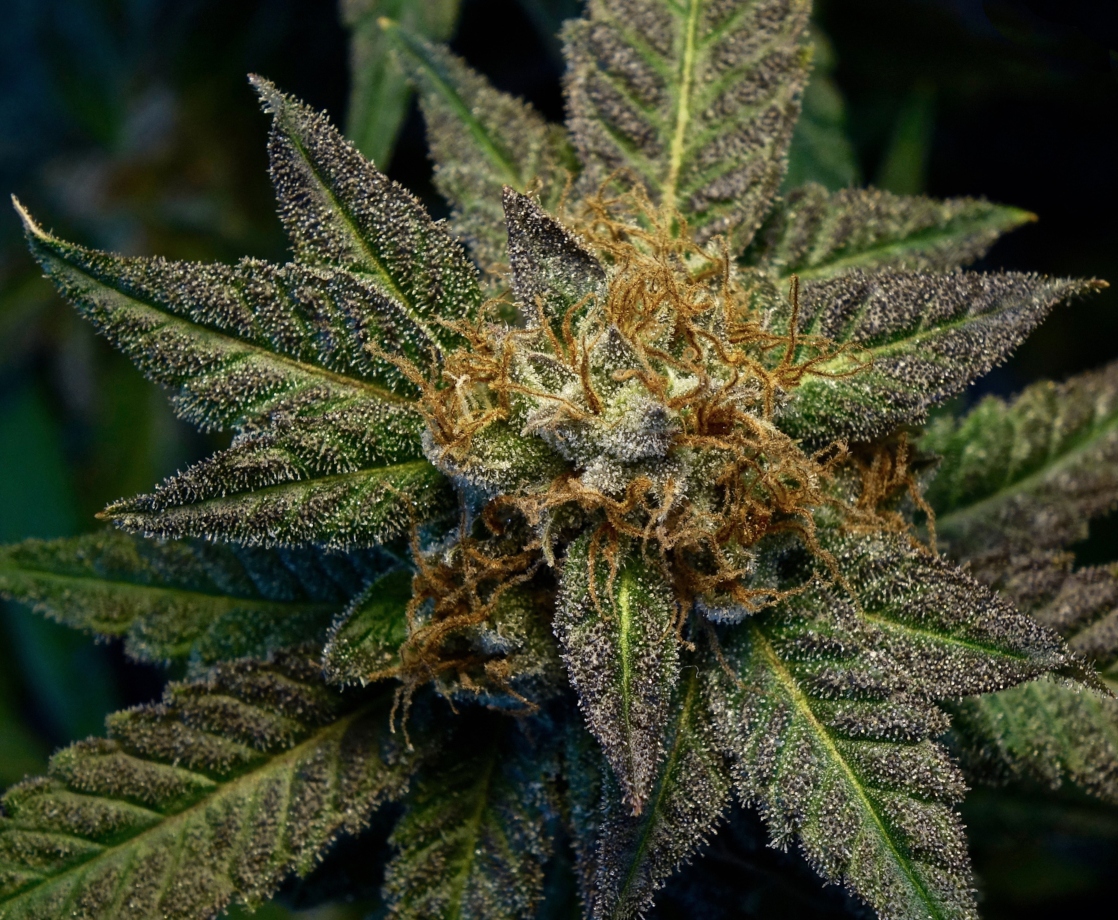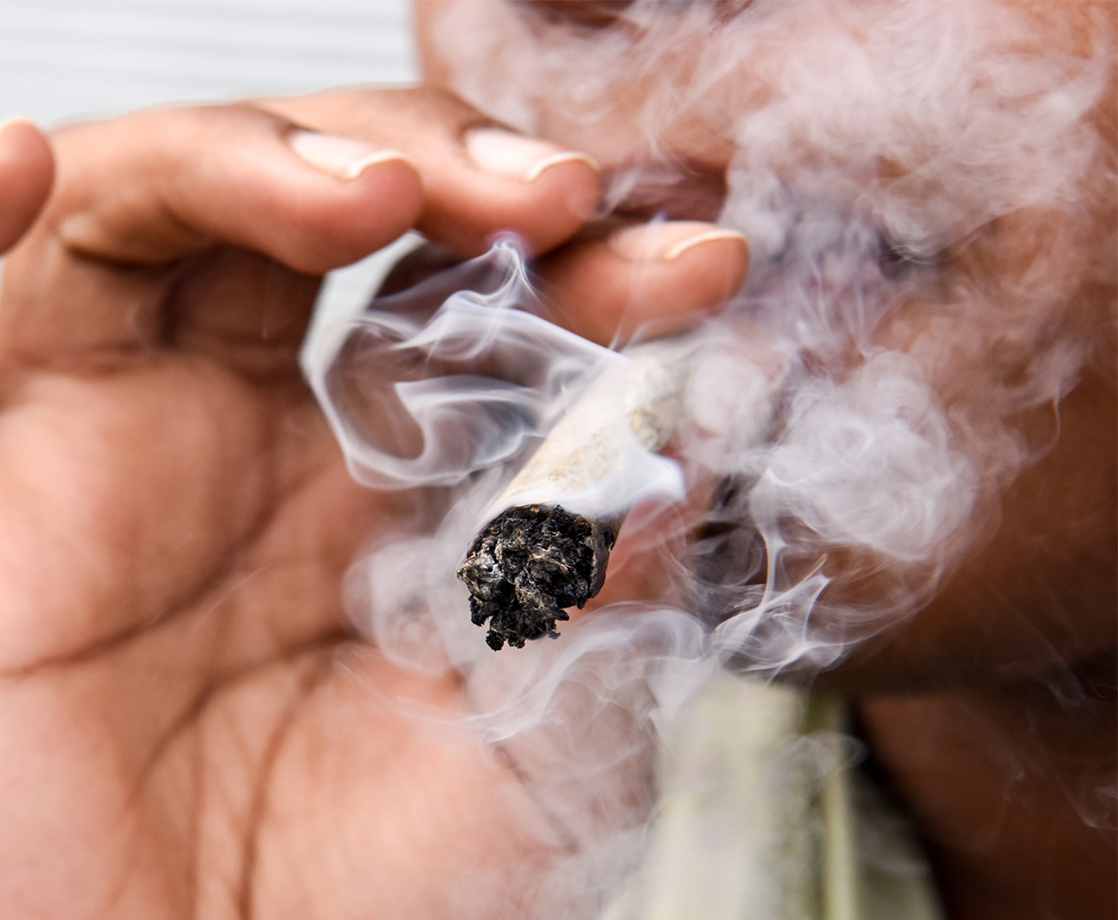[Update: February 3, 2020. The original version of this post described endometriosis as a condition where excess endometrial cells are pushed out of the uterus. The passage has been revised to reflect the most current understanding of how endometriosis develops.]
[Update: February 3, 2021. An update has been made to clarify that hysterectomies are not a cure for the condition.]
A new study showed that THC, the component of cannabis that gets people buzzed, can also treat some of the worst symptoms associated with endometriosis.
Endometriosis is a painful, often debilitating, medical condition that affects the uterus and surrounding organs. In endometriosis patients, endometrial cells typically formed inside of the uterus — where the uterine lining captures a fertilized egg and grows a baby in the womb — attach to other organs or structures found outside of the uterus. Endometrial cells found on other organs can develop into nodules or “implants,” which swell and bleed as if undergoing a menstrual cycle. Despite endometriosis being relatively common, affecting roughly 174 million people worldwide, modern medicine currently does not have a proper cure for the condition — even treatment around the condition is a bit hazy. Hysterectomies, or surgical removal of the uterus, doesn’t guarantee relief from endometriosis-related symptoms and can neither be classified as a treatment, nor as a “cure” for endometriosis.
“With a lack of effective treatments, women with endometriosis usually rely on self-management strategies like dietary changes or exercise,” wrote the study’s lead author, Rafael Maldonado, a medical researcher at the University Pompeu Fabra of Barcelona, Spain. “Although cannabis comes with a large number of potential side effects, its medicinal properties could provide pain relief in endometriosis and other conditions.”
The study, published last week in the science journal eLife, didn’t look at human subjects smoking weed, though. Instead, it looked at mice with endometrial grafts, then dosed the rodents up on pure THC to see if the compound did anything. And while we’re always skeptical of animal study data translating to human patients, the results nonetheless suggested that THC could help control the pain, and possibly even prevent cancers, caused by endometriosis.
Here’s what the researchers found: When mice were given 2mg/kg THC after receiving the endometrial grafts, the mice showed less sensitivity to pain in their pelvic regions, where they got grafted. Even more astonishing was that THC blocked the growth of endometrial cysts, which are linked to uterine cancers.
Furthermore, endometriosis is known to mess with a patient’s ability to think clearly. Again, THC treatments in the mice indicated they functioned normally, at the cognitive level, while stoned. So, even though this study only looked at mice, it does confirm previous studies that have included human endometriosis patients.
And while it sucks that mice were artificially given endometriosis for scientific research, we can only hope this study and others like it prompt more research in human subjects, which are still severely lacking when it comes to either medical cannabis or endometriosis.











